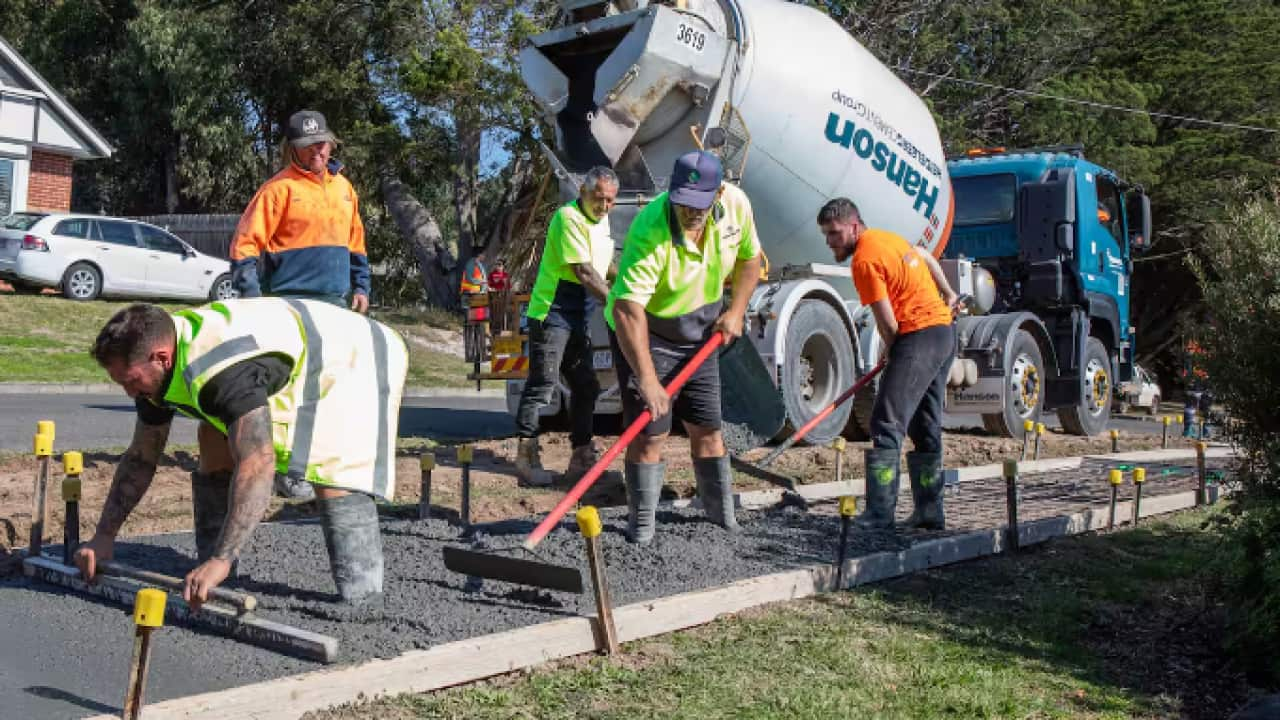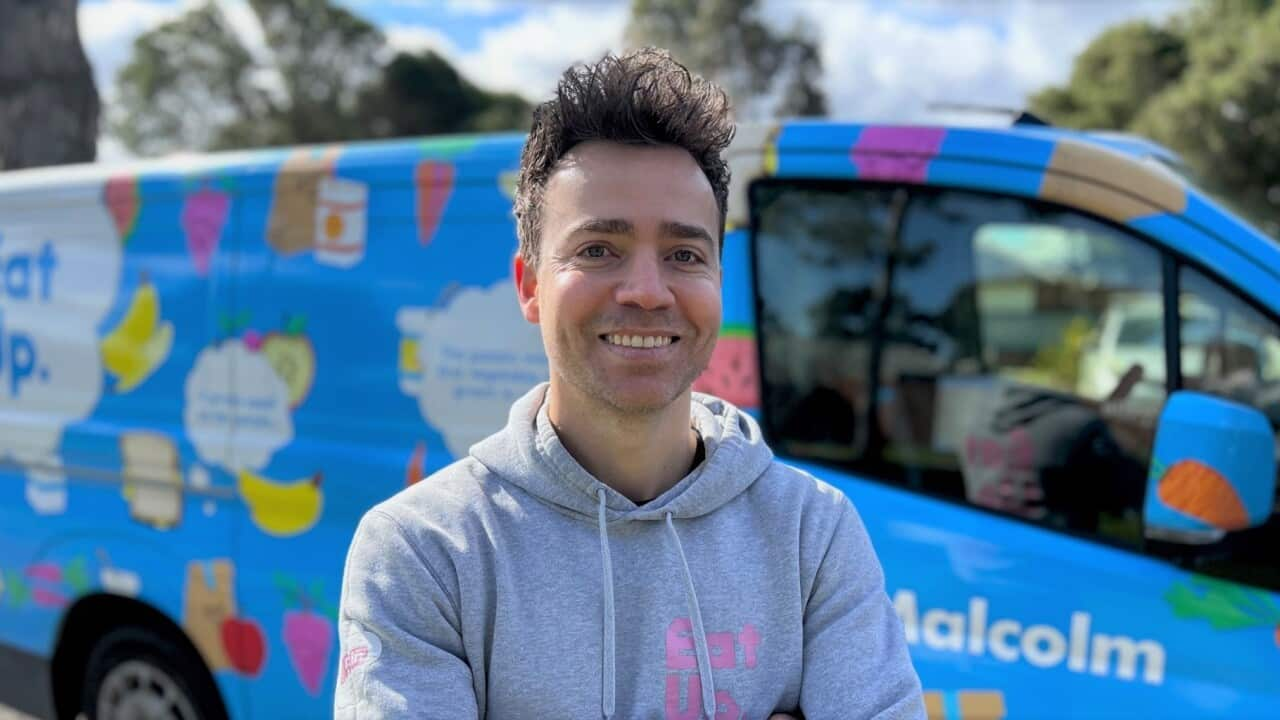At a 'repair cafe' in Sydney's north, volunteers are huddled around tables loaded with goods.
"This is a hair straightener, which isn't working," says Ian, a volunteer.
"I can't fix it today. So my suggestion is to take it to the community recycling centre."
Twice a month in Lane Cove cafe, skilled volunteers, including retired engineers, jewellers and technicians, repair household items — from electrical devices to handbags, toys, clothes and gardening tools.
Co-founder Wendy Dwyer, 73, says around two-thirds of the 1,000 items brought in each year are repaired and diverted from landfills.
"I feel very, very proud of the work we do here, and it's all free of charge," Dwyer says.
"It's a fantastic way to keep used goods out of landfill, extend their life and save people money by repairing things that are precious to them."
A $13 billion waste problem
However, not all goods can be repaired, and it is part of a growing problem.
Foreign-made electrical goods that are not easy to repair are flooding into Australia, according to the Australian Repair Network (ARN), which brings together stakeholders in the sector.
"The national household appliance market in Australia is projected to reach over $13 billion in 2024, and that figure is growing every year," says ARN chair Professor Leanne Wiseman from Queensland's Griffith University, a figure supported by market analysis from global research firm IBISWorld.

According to the federal government, Australia produces approximately 75 million tonnes of waste annually, with much of it ending up in landfills. Source: SBS / Sandra Fulloon
"So, what we are seeing is this incredible growth of waste in Australia, and the fastest growing waste stream is e-waste."
According to the federal government, Australia generates around 75 million tonnes of waste each year, much of which is destined for landfills.
The push for the 'right to repair'
ARN has advocated for 'right to repair' legislation in Australia to make it easier for consumers and repairers to fix broken goods.
The federal government has this week flagged new laws that would give households and businesses access to repairs at reasonable prices.
It would bring Australia into line with Europe, as part of a new $900 million push to boost national productivity.
A 'right to repair' regime, called the Ecodesign directive, will roll out across the European Union next year. It will require manufacturers to create repairable goods and provide spare parts for up to ten years.

The government has flagged new laws that would give households and businesses access to repairs at reasonable prices. Source: SBS / Sandra Fulloon
"These new laws would mean that all Australians, not only our consumers but our businesses and potentially our farmers and our hospitals, will be able to repair the things that they own and buy," Wiseman says.
"It's not only about making spare parts available and affordable but getting access to diagnostic software and information that they may need and the tools that they need. So, this affects our small and medium businesses as well as individuals."
Wiseman argues that Australia has been "lagging behind" the rest of the world, particularly when it comes to the right to repair reforms.
"We know that there are not only environmental savings by reducing waste, but the economic savings — particularly in a cost of living crisis that we're currently facing — are huge," she says.
Repair and reuse
Repair cafes offer one solution to reducing waste.
Lane Cove's co-founder Wendy Bishop is among those working to extend the life of household goods.
"I've done a shoe-making course at TAFE, so I can add value to that," she says.
"Other volunteers have a technical background or engineering experience.
"Shoes, maybe two-thirds we can repair. Sewing, it's about 100 per cent and sharpening knives, also about 100 per cent."

Volunteers at repair cafes fix household items, aiming to reduce the need for raw materials to manufacture new products and cut carbon emissions. Source: SBS / Sandra Fulloon
"The international Repair Cafe movement just celebrated its 15th anniversary," Wiseman says.
"There are now more than 3,000 repair cafes worldwide in 40 countries."
By repairing household items, volunteers also aim to reduce the volume of raw materials and energy needed to make new products, cutting carbon emissions.
"These community-based repair activities demonstrate the circular economy in action," Wiseman says.
"It's something that people can get involved with to prevent goods from going into landfills. It doesn't get any better than that."
Building a 'better future for our communities'
Dwyer migrated from Singapore 43 years ago and later taught English to refugees and migrants for more than 20 years.
"In retirement, it's really, really important to do something that you're passionate about, and for me, it's finding the repair cafe and believing in what it does," she says.
For Dwyer, it's about more than saving money in a cost of living crisis.
"For people who brought heirlooms [to Australia] perhaps inherited from family back home, this is one of the few places that will actually look at it and repair it free of charge.
"These cafes help the environment by reducing waste and building a better future for our communities.
"I would like to see every council across Australia set up their own repair cafe."












